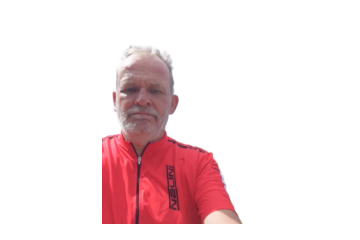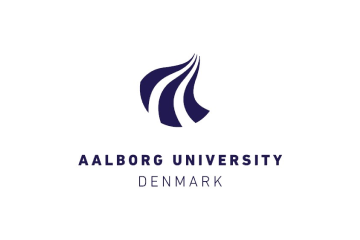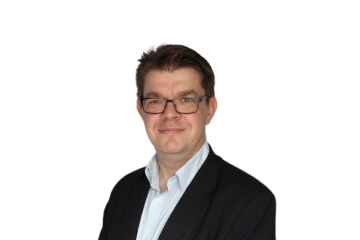
Energy Efficiency within Transport. Country breakdown of electrification, modal shift, and power-2-X
Date: 24. 03. 2022
Time: 9:00 – 10:00 am
Organized by: sEEnergies, T&E and Aalborg University
As a response to the European Commission’s 2050 decarbonization goals, sEEnergies uniquely considers all aspects of the Energy Efficiency (EE) First Principle. By applying it in sectors and markets, country-by-country and grid-by-grid, and by combining temporal and spatial analyses, sEEnergies will develop an innovative, holistic and research-based EE-modelling approach.
The aim of sEEnergies is to quantify and operationalize the potential for energy efficiency in buildings, transport, and industry. The project goes beyond state-of-the-art science-based knowledge and methods, as it combines sectorial bottom-up knowledge with hour-by-hour modeling of the energy systems and spatial analysis in the EU. Web: www.seenergies.eu Twitter: @sEEnergiesEU
At this webinar, Hamza Abid and Morten Elle from Aalborg University will present the European energy efficiency potentials as well as some country-specific results in the transport sector including passenger vehicles, heavy-duty trucks, shipping, and aviation. Two major themes for energy efficiency in the transport sector will be presented: (1) Quantification of savings through energy-efficient urban development. This is based on a scenario where mobility is provided through enhanced proximity to destination, modal shifts from energy-intensive to energy-efficient modes of transport, and reducing the movement of persons and goods. (2) Exploratory transport technology scenarios outlining the utilization and allocation of energy-efficient technologies such as direct electrification through battery electric vehicles and e-roads, as well as indirect electrification such as P2X and electro fuels. A series of transport scenarios with the aim to reduce the demand for transport and related energy consumption and GHG emissions are presented as well as some country-specific aspects. The presentation will give a broad understanding of the economic and social impacts of implementing the Energy Efficiency First Principle in the European transport sector.
From Transport & Environment (T&E), Jeppe Juul will present on the EU’s plan for a green transition, Fit for 55, and how it contributes toward a green transition of the European transport sector.
Presented by
Agenda
09:05 – 09:25
Welcome
Brian Vad Mathiesen (Aalborg University)
09:25 – 09:40
Decarbonization scenarios for the European transport sector by 2050 through energy-efficient urban development and transport electrification
Morten Elle and Hamza Abid (Aalborg University)
09:25 – 09:40
Fit for 55 and transport: How much does Fit For 55 deliver towards a green transition of Transport in EU
Jeppe Juul (European Federation of Transport & Environment)
09:40 – 10:00
Discussion and feedback from stakeholders
Morten Elle is Associate Professor at the Department of Planning, Aalborg University. His research focuses on sustainable cities, especially the transition of urban technical infrastructure. He has been working with Petter Næss, Hamza Abid, and others on WP2 – Mobility – in the sEEnergie’s project, using his expertise to develop ideas of energy-efficient urban development that sustains the transition towards energy-efficient mobility. After Petter Næss retired, Morten became the leader of WP2.
Hamza Abid comes from an engineering background with a double master’s in Energy for Smart Cities from KU Leuven, Belgium, and KTH, Sweden. With a focus on energy modeling and sector coupling, he has been working with the core modeling team for the sEEnergies project at Aalborg University in Copenhagen. As part of the project, Hamza has been analyzing in particular, European transport decarbonization scenarios by 2050, and quantifying the impact of energy savings on the overall European energy system.
Jeppe Juul is Vice-President in the European Federation for Transport & Environment and also works as Senior Policy Officer for Climate and Transport in Green Transition Denmark. He has worked for 13 years with green transport an has besides transport also worked with EUs Integrated Product Policy.
Brian Vad Mathiesen, Professor in Energy Planning and Renewable Energy Systems at Aalborg University, holds a PhD in fuel cells and electrolysers in future energy systems (2008). His research focuses on technological and socio-economic transitions to renewables, energy storage, large-scale renewable energy integration and the design of 100% renewable energy systems.
He is one of the leading researchers behind the concepts of Smart Energy Systems and electrofuels. He is on the Clarivate, Web of Science Highly Cited list (2015-2020), thus among the top 1% most cited researchers globally. Among other positions, he is member of the EU Commission expert group on electricity interconnection targets in the EU and The newly founded Science Advice for Policy by European Academies (SAPEA) Expert Group on A Systemic Approach For the Energy Transition In Europe. He is the Research Coordinator of the Sustainable Energy Planning Research group, Principal Investigator (PI) of the RE-INVEST and sEEnergies projects, and Programme Director for the MSc in Sustainable Cities.
He has been PI, work package leader and participant in more than 60 research projects as well as editorial board member of The Journal of Energy Storage (Elsevier) and The Journal of Sustainable Development of Energy, Water & Environment Systems; Associate Editor of Energy, Ecology and Environment (Springer) and Editor of the International Journal of Sustainable Energy Planning and Management. Recently he started the new Elsevier Journal Smart Energy. Furthermore, he is a member of The Danish Academy of Technical Sciences (ATV) and a board member at The Danish Energy Technology Development and Demonstration Program (EUDP).Furthermore, he is a member of The Danish Academy of Technical Sciences (ATV) and a board member at The Danish Energy Technology Development and Demonstration Program (EUDP).







